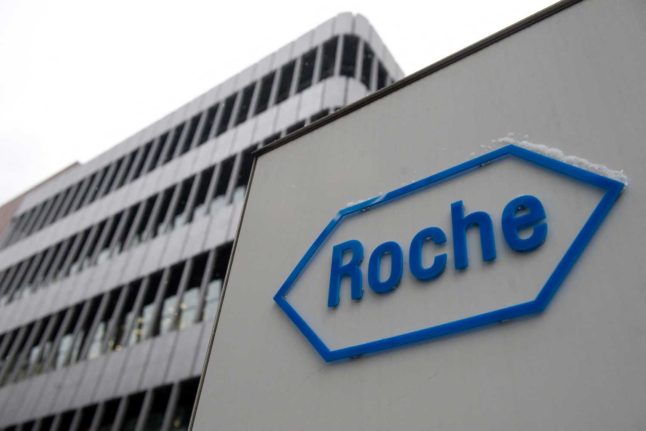The results of the Phase 3 trial showed that the combination of the antibodies casirivimab and imdevimab dramatically reduced the risk of symptomatic infection among people living with Covid-19 patients, Roche said in a statement.
The trial entailed injecting 1,505 people not infected with the SARS-CoV-2 virus but living in households with people carrying the virus with the Regeneron antibody cocktail or a placebo.
READ MORE: Why are vaccination appointments still vacant in Zurich?
The trial, which was conducted in cooperation with the National Institute of Allergy and Infectious Diseases, showed that those who received the antibody cocktail saw their risk of symptomatic infection reduced by 81 percent, the companies said.
It also indicated that those treated with casirivimab and imdevimab who did experience symptomatic infection on average saw their symptoms clear within one week — far faster than the three-week average for those who received the placebo.
In a separate part of the study, 204 people who had recently tested positive for Covid-19 but showed no symptoms received either a dose of the antibody cocktail or a placebo.
Those who received the cocktail saw their risk of developing symptoms reduced by 31 percent compared to the placebo group, the companies said.
“Today’s data confirm the potential dual value of casirivimab and imdevimab to reduce household Covid-19 infections and to decrease the disease burden in those who do become infected, when given as a subcutaneous option,” Levi Garraway, Roche’s chief medical officer said in a statement.
“Although vaccinations are increasing globally, there remains a critical unmet need worldwide to prevent infections and provide immediate protection from Covid-19 between close contacts,” he said.
EXPLAINED: How Switzerland is speeding up its vaccination programme
Regeneron president and chief scientist George Yancopoulos agreed, pointing out that in the United States alone, 60,000 people are being diagnosed with Covid-19 every day.
The antibody cocktail “may help provide immediate protection to unvaccinated people who are exposed to the virus”, he said in a statement, adding that it could also potentially “provide ongoing protection for immunocompromised patients who may not respond well to vaccines”.
Regeneron said it would present the data to the US Food and Drug Administration and request it clear the Covid antibody cocktail for use as a preventative treatment.
The companies said they would share the new data with health regulators worldwide.



 Please whitelist us to continue reading.
Please whitelist us to continue reading.
Member comments